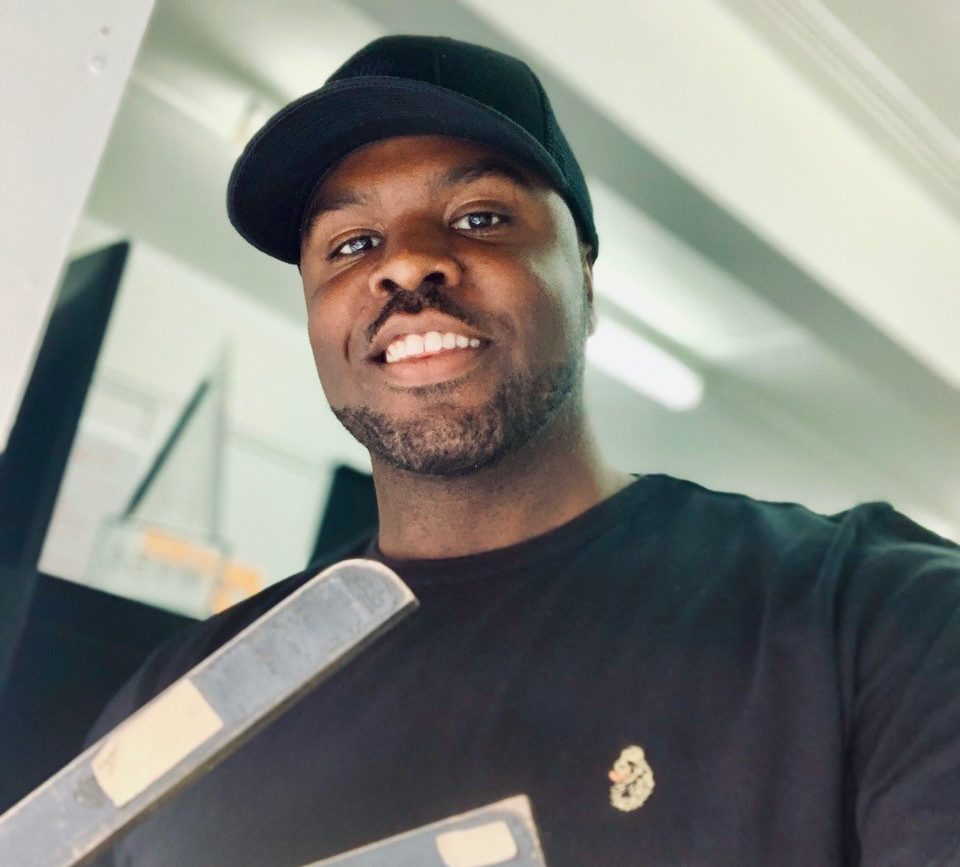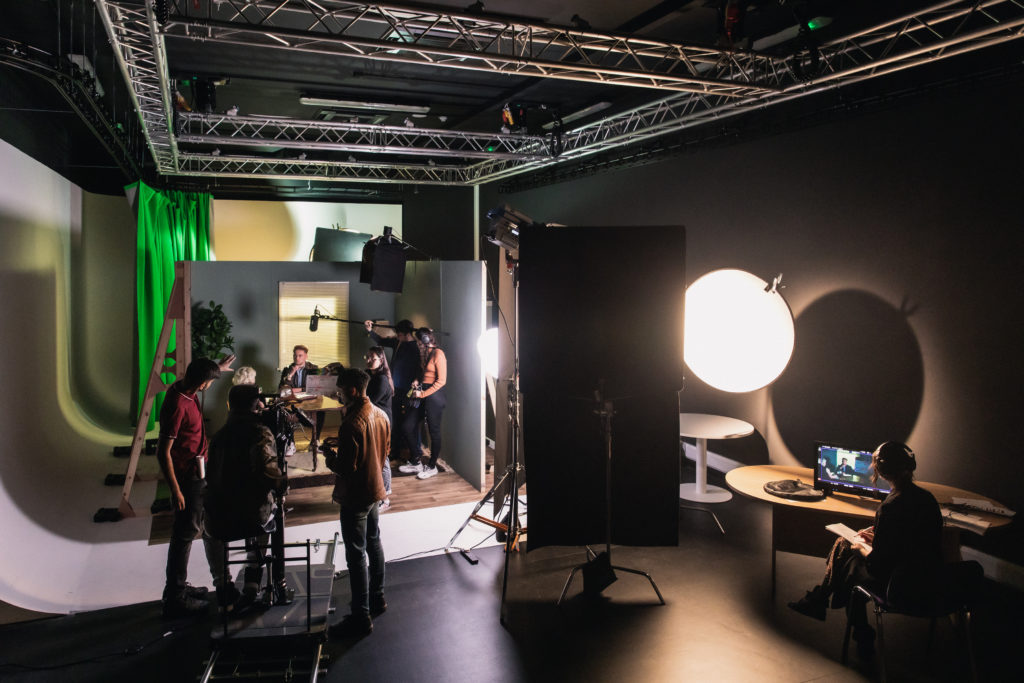In conversation with Daniel Alexander, award-winning director
Screen and Film School Birmingham recently had the great pleasure of welcoming the hugely talented director Daniel Alexander for an expert masterclass.
Based in Birmingham, Daniel started making music videos inspired by time driving in the city, and from those beginnings he now boasts a CV full of big-name TV, film and corporate projects, for BFI, Sky, BBC and many more. He even directed the official film for the 2022 Commonwealth Games handover ceremony, viewed by over 1.5 billion people live around the world. In November Daniel sat down with our students in Digbeth and offered many pearls of wisdom about his filmmaking journey.
How did you get started in the industry?
“You know when you’re young and you go out driving with mates, I remember thinking that some of the things that go on were mad and should be filmed. So, I started recording them on a cheap camera, and that eventually lead to music videos. A number of my mates were rappers, so I used to shoot music videos for them. It was a long process; I didn’t know what I was doing. There were far fewer film schools like this, so it was really difficult.”
So how did you make the transition from hip-hop shorts to a feature-length narrative?
“Everyone saw my work, but no-one knew my name. So, that’s when I got creative, and started to plaster my name all over my videos. Everyone’s your best friend on music videos, but once they’re out there and successful, no-one cares who shot them. The more that I did it, the more artists that saw my name. It reached a point where if any rap, garage and grime videos in Birmingham, the artists came to me, then this extended to London. This was when I learned an important lesson: leverage. I wanted to start making narrative films at this point, and I realised that if I can be noticed, if I can be visible, then I can make the transition to where I want to be.”
That’s certainly an impressive leap, but one that could seem like an impossible one to a student making their first film.
“The advice I give to people today is that creativity in making your projects is great, but you must be creative in how you promote and market yourself too. I was worried I wouldn’t be taken seriously as a filmmaker having just made music videos. So, I made a film then also put myself in front of everyone in positions of influence and power. I went into these meetings and acted as if I was a real filmmaker and that worked for me.”
Your methods have clearly worked because you now have brands and production companies such as Sky, BBC, BAFTA, Sony and even the Commonwealth Games on your resume.
“The Commonwealth Games came to me. Everyone was pitching for that, established people from BBC to Channel 4. I didn’t even apply, someone said we need to get Daniel Alexander in the room as a diverse representative in the city. The audience for the handover is 1.5 billion people around the world, the biggest televised event Birmingham has ever seen, and there were all these people who have way more credits than me. They asked me to come up with an idea of how I would do it. I gave a pitch and then they put a large sum of money in my bank and that had to make a whole film. Instead of the usual subjects I hired all my friends. Not the people off the block who wouldn’t do anything, but talented people who couldn’t get a shot. Now thanks to that film, all those people who worked on it are working in the industry.”
Tell us about the difference in pre-production: how you approach a documentary, a drama, a corporate gig.
“I always start with best case scenario: what do I want it to look like. I start big but then if I don’t have the budget for that I can come down. Always start by being unrealistic, because you always have to come down. Write down the crazy ideas you have and figure out if you can make it happen. It’s the most enjoyable time for me, as it’s the only time your idea is perfect. Then you get there and it’s raining, or the actor doesn’t turn up, or you lose access to the shoot. These thing happen.
When I approach a drama, I have to look from a commercial side; what else is out there. It’s going on a platform that’s widely received, so I need to look at what else is out there, what’s trending and put my stamp on it, in a way that can still appeal to people who love that genre.”
What’s your advice to our students on how to get that first step on the ladder in the industry?
“Everything is about relationships. My advice would be to find groups that post lots of production opportunities. There’s a Facebook group and website called Film Crew Birmingham. I would directly contact them to build a relationship, and let them know how passionate you are, what kind of work you’ve done, and you want to do. Let them know you want to shadow and observe. As soon as you’ve been on one production, introduce yourself to people, be enthusiastic, likeable and show your willingness to work, you’ll springboard from one to another.”
Finally, could you tell everyone about the fantastic personal schemes and opportunities you offer to our students?
“Because of how I got into this industry, I hated the fact that there were no opportunities. It seemed impossible. There is a lot of misinformation on how the industry works and how you get in. And there’s so many quicker pathways. I try to do programs off my own back, where I take filmmakers and say we’re going to make a film over two weeks and try to answer questions: how do you make a film? How do you get to know how everything works? What do you do afterwards? Then how do you have those conversations to get it in front of people? There’s a massive difference between having an email ignored and getting a response. I have a student that studies here at the Film School who has been on massive sets because of that process. Every production I do, I want to make sure there’s one or two people on set who can learn.”
It was so enjoyable and important for our students to have a local filmmaker who was willing to be so generous with their time and advice. It’s an inspiration to see the success that Daniel is enjoying, due to his hard work, creativity and willingness to collaborate. Thank you to Daniel for championing our students and the Film School itself. We look forward to seeing you again soon and we can’t wait to see what your next project looks like.
Are you interested in being a part of the new legacy at Screen and Film School Birmingham?
Sign up to one of our Open Days:
Find out more information on our courses by clicking below:




